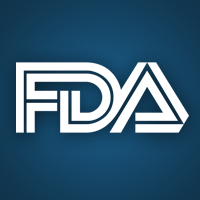FDA Issues Refusal to File for Postoperative Pain Reliever's NDA Bid
Deeming Xaracoll to be a drug/device combination, the Food and Drug Administration notified Innocoll yesterday that it would not be going forward with the New Drug Application they had filed for the product in October.

Deeming Xaracoll to be a drug/device combination, thus requiring a more extensive application, the US Food and Drug Administration (FDA) notified Irish company Innocoll yesterday that it would not be going forward with the New Drug Application as they had filed it for the product in October.
Xaracoll is described as a “bioresorbable bupivacaine-collagen matrix” meant to be inserted into an incision following hernia surgery. Bupivacaine is a local anesthetic, and the purpose of the treatment is to provide quick on-site pain relief following operations. The company believes such an approach could be useful in lowering the opiate burden following the common procedure.
Phase 3 results were announced in May, Innocoll was hoping to have the product to market sometime in 2017, a hope that seems less likely following the FDA’s decision. In the initial announcement, Harold S. Minkowitz, MD, Department of Anesthesiology, Memorial Hermann Memorial City Medical Center, Houston, TX said the treatment “could become an important option for the surgical and anesthesia communities in addressing patient satisfaction with pain management options and the need for opioid-sparing approaches to pain reduction.”
Those phase 3 trials, MATRIX 1 and 2, used sum of pain intensity over 24 hours as a primary endpoint, with the same metric over 48 and 72 hours as secondary endpoints. Implanted immediately following open laparotomy hernioplasty with mesh as a 300mg dose with a background 650mg of acetaminophen, it met the primary endpoint in MATRIX 1 (p=0.0004) and MATRIX 2 (p<0.0001). MATRIX 2 achieved statistical significance at 48 hours, with MATRIX 1 trending that direction. Both showed decreases in total opiate consumption following surgery and increases in time to first opioid use.
The Refusal to File seems to be more a matter of classification than an outright rejection of the implant’s premise, but remains a setback to Innocoll nonetheless. The company saw its stock prices fall significantly in the immediate aftermath.
Hernias and their subsequent surgical repairs are extremely common. According to the FDA, over a million such operations are performed each year in the US, with mesh-based repairs accounting for more than 90% of groin hernia surgeries. Opioids are commonly prescribed following such surgeries, and, according to some studies, are prescribed overly and unnecessarily. A large University of Pennsylvania study published in JAMA in March found that over 75% of those in their cohort recovering from inguinal hernia repair filled a prescription for the powerful painkillers within a week of the surgery, which the authors characterized as “low-risk.”
The FDA’s Refusal to File was announced last evening by Innocoll in a press release. The company’s CEO Tony Zook said they planned to “work with the FDA over the coming weeks in an effort to address the open issues and to define a path forward for a successful re-filing of our application at the earliest point in time.”
Related Coverage:
Opioid Dependence After Surgery Is Even Worse Than Physicians Thought
Opioid-Naïve Patients Should Be Given Low Doses, No Refills
Genetic Study Identifies New Target for Treating Post-Surgical Pain